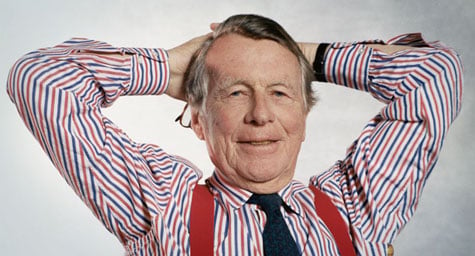Why David Ogilvy Would “Like” Social Media


The late David Ogilvy is famed for his focus on the big idea, and no idea would have delighted him as much as the phenomenon of social media. Technorati.com explained why the advertising visionary would have been a fan of this modern means of communication.
1. It’s The Wonder of Word of Mouth – Mr. Ogilvy talked about the power of word of mouth decades ago, and social media is the ultimate form of it. It’s the spoken spark that influences and starts conversations about your brand, but it’s important to monitor every word if you want it to stay in your best interest.
2. It Lets a Brand Express Its Personality – Mr. Ogilvy believed that products had distinct personalities that made them unique. Today, the numerous forms of social media allow brands to define their attributes and benefits while speaking to their online audiences. It also lets a brand’s agency leverage its image to create the product’s persona.
3. It Capitalizes on Good Copywriting – Mr. Ogilvy famously described himself as a copywriter with some big ideas. Social media is built upon good ideas expressed through compelling copy, whether through blog posts, Web copy, Facebook profiles or online comments.
4. It Requires Research – Mr. Ogilvy believed that research was essential in advertising because it allows a company to assess its reputation with consumers. Social media serves the exact same purpose since it goes directly to consumers to monitor what they’re thinking, saying and feeling about your brand.
5. It Allows for Analysis – Mr. Ogilvy loved to see the visible and measurable results that analytics provide, so he would have been thrilled with the many modern metric tools associated with social media marketing. He also like comparing the effectiveness of different media, so the growing number of social media platforms and forums would have been a virtual playground for the advertising guru.
What may have pleased Mr. Ogilvy most about social media is that allows for the immediate sharing of big ideas among companies, consumers and individuals. It opens the door to creativity, conversation and innovation in ways we never thought possible and encourages the proliferation of big ideas that can make a big difference.
